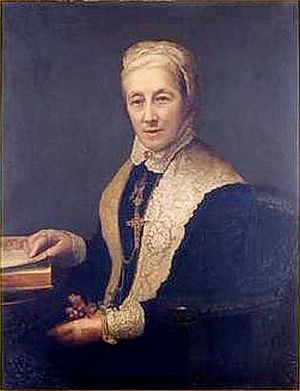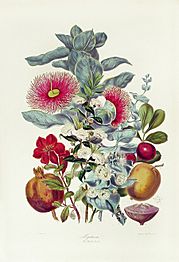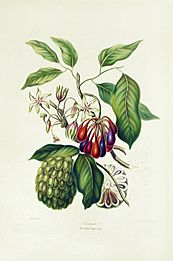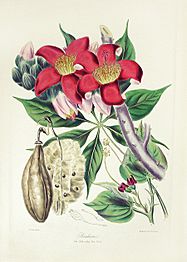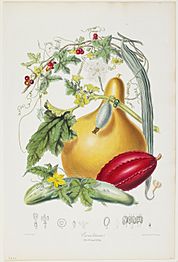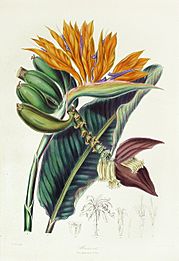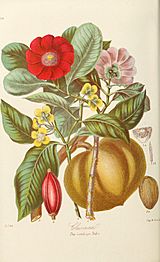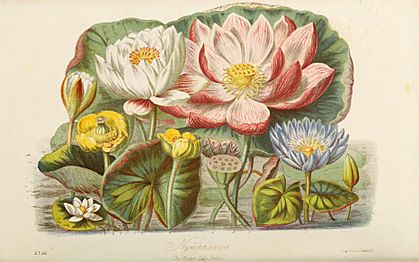Elizabeth Twining facts for kids
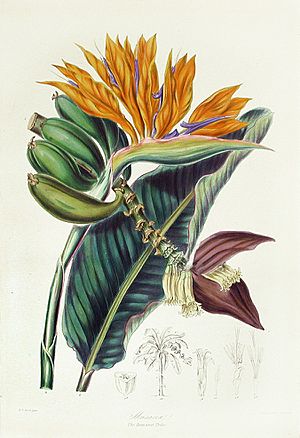
Elizabeth Twining (born in 1805, died in 1889) was an English artist, writer, and a special kind of illustrator. She was known for drawing plants very carefully. She is most famous for her detailed plant drawings in a two-book series. This series was called Illustrations of the Natural Order of Plants and was published between 1849 and 1855. Elizabeth was also from the wealthy Twinings family, who are famous tea merchants. She used her wealth to help others.
Contents
About Elizabeth Twining's Life
Elizabeth Twining was born in 1805. She was one of nine children in the Twinings tea-merchant family. Her father was Richard Twining. Elizabeth grew up in London. As part of her education, she learned art and drawing.
She was inspired by a magazine called The Botanical Magazine. She also loved the gardens at the Royal Horticultural Society in Chiswick. Elizabeth started drawing plants and flowers. She practiced by sketching pictures from the Dulwich Picture Gallery. Her father helped her visit famous museums to learn more.
Her Famous Plant Books
Elizabeth Twining wrote and drew pictures for several books about plants. Her most famous work was the two-book series, Illustrations of the Natural Order of Plants. The first book came out in 1849, and the second in 1855.
These books included 160 hand-colored pictures. These pictures were made using a printing method called lithography. They were very large, about the size of a royal-folio. People say she based her drawings on plants she saw at the Royal Botanical Gardens in Kew. She also drew from plants at Lexden Park in Colchester.
Later, in 1868, a smaller version of the books was made. This edition had cheaper, color-printed pictures. This was because hand-coloring was very expensive.
Later Life and Legacy
Elizabeth Twining lived in the old family home called Dial House in Twickenham. She passed away in 1889. In her will, she gave Dial House to the people of Twickenham. It was used as a home for the local vicar.
Most of her original drawings are now kept at the British Museum. She is buried in Twickenham Cemetery. Elizabeth was also the older sister of Louisa Twining, who worked to help people in society.
Elizabeth's Work Helping Others
Elizabeth Twining was well-known for her kindness and for helping people. She did many good things for her community.
She started and managed a hall in Portugal Street. This hall was for people who wanted to avoid alcohol. She also fixed up the old almshouses (homes for poor people) near her home in Twickenham. There is a plaque at St Mary's Church, Twickenham that remembers this.
Elizabeth also had a long connection with King's College Hospital. She later helped start the St John's Hospital. This hospital was built to treat people who were poor.
She also started "mothers' meetings" in London. These were gatherings for mothers to meet and support each other. For these meetings, she wrote books like Ten Years in a Ragged School and Readings for Mothers' Meetings. She also helped Elizabeth Jesser Reid start the Bedford College for Women.
Gallery
 | Kyle Baker |
 | Joseph Yoakum |
 | Laura Wheeler Waring |
 | Henry Ossawa Tanner |


